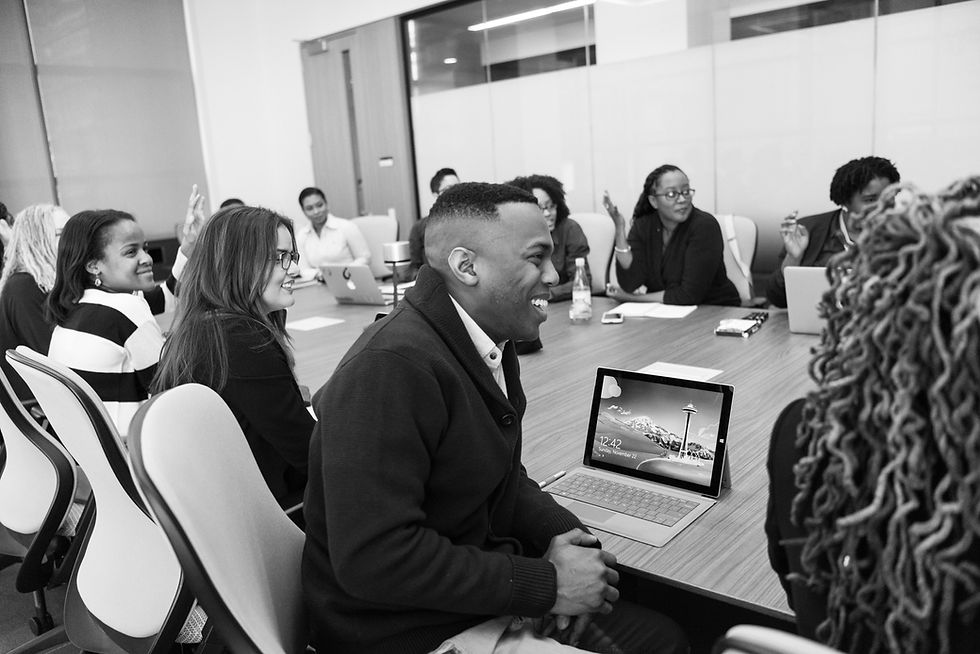Beyond Burnout: Rethinking Wellness and Leadership in Schools
- Nina Mauceri
- Oct 19, 2025
- 3 min read

When I was a teacher and later a school leader, I would look forward to winter break like it was salvation. I’d plan out all the things I was finally going to do—the things for fun and the things that had been piling up while I was sprinting through the semester. I’d think, This is the week I’ll finally get that oil change, schedule the dentist, and repot the plants that have been hanging on for dear life. I’ll sleep in, go see a show, maybe catch a concert, and stay up past 10 PM just because I can. There was always this little surge of hope that I’d come out of the week feeling restored—caught up, rested, maybe even a little more like myself again.
And every single year, without fail, I got sick. School Leadership
I would spend most of the week in bed, too tired to do any of it. It took me a long time to realize what was happening: my body was shutting down the minute it had an opportunity to rest. I had been pushing through exhaustion for months, giving energy I didn’t have, and the second I paused, my body claimed the rest it was owed.
This is a story I hear again and again from the educators and leaders I work with. The pattern is nearly universal—periods of relentless giving, followed by collapse. We call it “break,” but it’s more like recovery from a marathon we never trained for.
Recently, I was talking with a dear friend and colleague—a wellness practitioner—about why rest feels so elusive for educators. She said something that stopped me completely: “Wellness is awareness.”
It sounds simple, almost too simple, but that’s exactly what most of us are missing. We move without noticing. We teach, plan, respond, and solve, often without realizing how far we’ve drifted from ourselves. We think recovery means sleep or time off, but it begins long before that. Awareness is the bridge between action and rest—the moment we actually notice our depletion, our pace, our breath.
Awareness is what allows us to intervene before collapse. Without it, we don’t rest—we crash.
The research is clear: rest is not the absence of productivity—it’s the foundation for it. A 2022 meta-analysis of 22 studies involving over 2,300 participants found that even micro-breaks—pauses shorter than ten minutes—significantly increased energy and reduced fatigue (Bosch et al., 2022, Frontiers in Psychology). And while those brief pauses help sustain focus throughout the day, longer recovery periods have a greater impact on creativity and higher-order thinking—the kind of work that leadership demands (Bosch et al., 2022).
The Center for Creative Leadership has identified recovery routines—like sleep hygiene, physical activity, mental detachment, and social connection—as essential practices for sustained performance and burnout prevention (Center for Creative Leadership, 2023). Similarly, Gartner found that organizations prioritizing rest see a 26% increase in performance and dramatically lower burnout rates among employees (Gartner, 2023).
Even the corporate world has caught on. Many CEOs now describe themselves not as “always on,” but as elite performers who train and recover in cycles—recognizing that strategic rest fuels sharper decision-making and creativity (Financial Times, 2024).
So why do so few of us in education give ourselves permission to rest before collapse?
In schools, exhaustion has become a badge of honor. We glorify busyness. We equate sacrifice with commitment. But no one can pour from an empty cup—not even the best leaders.
When we pause—truly pause—we allow our nervous systems to reset. We regain perspective, empathy, and strategic clarity. A rested mind sees the big picture. A depleted one simply reacts.
Wellness is awareness. It’s the pause that reconnects us to purpose, the noticing that precedes the change.
That’s why I created the Leading for Belonging retreat on November 25th—a restorative space for reflection, creativity, and connection. It’s a chance to realign with your purpose, alongside other leaders who are ready to redefine what sustainability in education looks like.
If you’ve been feeling that familiar edge of fatigue, consider this your invitation to stop pushing through. The most strategic thing you can do for your school might not be to work harder—but to recover better.
👉 Register for the retreat or reach out to talk about integrating reflection and recovery into your leadership practice. REGISTER HERE: https://bit.ly/4gNvbL3
References
Bosch, C., Sonnentag, S., & Hunter, E. M. (2022). The effects of micro-breaks on well-being and performance: A meta-analysis and systematic review. Frontiers in Psychology, 13. https://pmc.ncbi.nlm.nih.gov/articles/PMC9432722/
Center for Creative Leadership. (2023). Improve performance, foster resilience, prevent burnout: Recovery practices that work. https://www.ccl.org/articles/leading-effectively-articles/improve-performance-foster-resilience-prevent-burnout-recovery-practices/
Gartner. (2023). It’s time to prioritize rest. https://www.unleash.ai/wellbeing/gartner-its-time-to-prioritize-rest/
IMD. (2023). Reap the rewards of allowing employees to rest and recover. https://www.imd.org/ibyimd/audio-articles/reap-the-rewards-of-allowing-employees-to-rest-and-recover/
Financial Times. (2024). Top executives are learning to recover like elite athletes. https://www.ft.com/content/be82fd8b-1f85-449c-8b0f-f551ad91







Comments